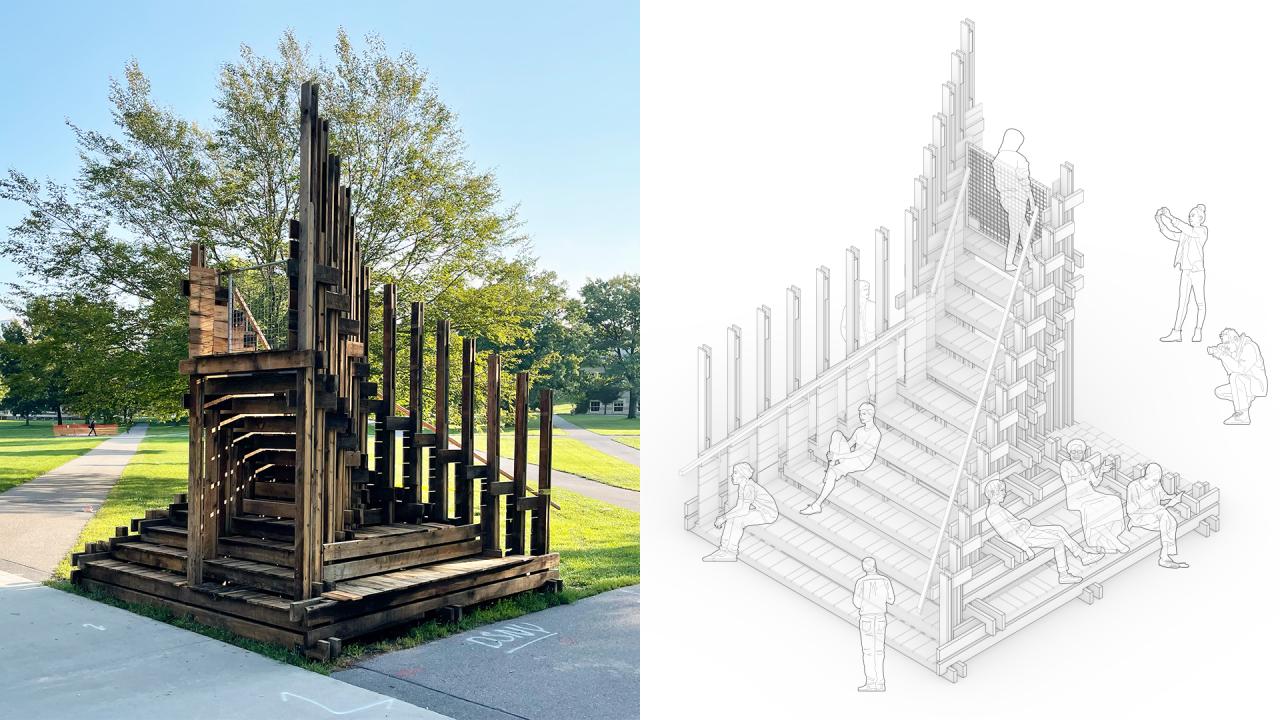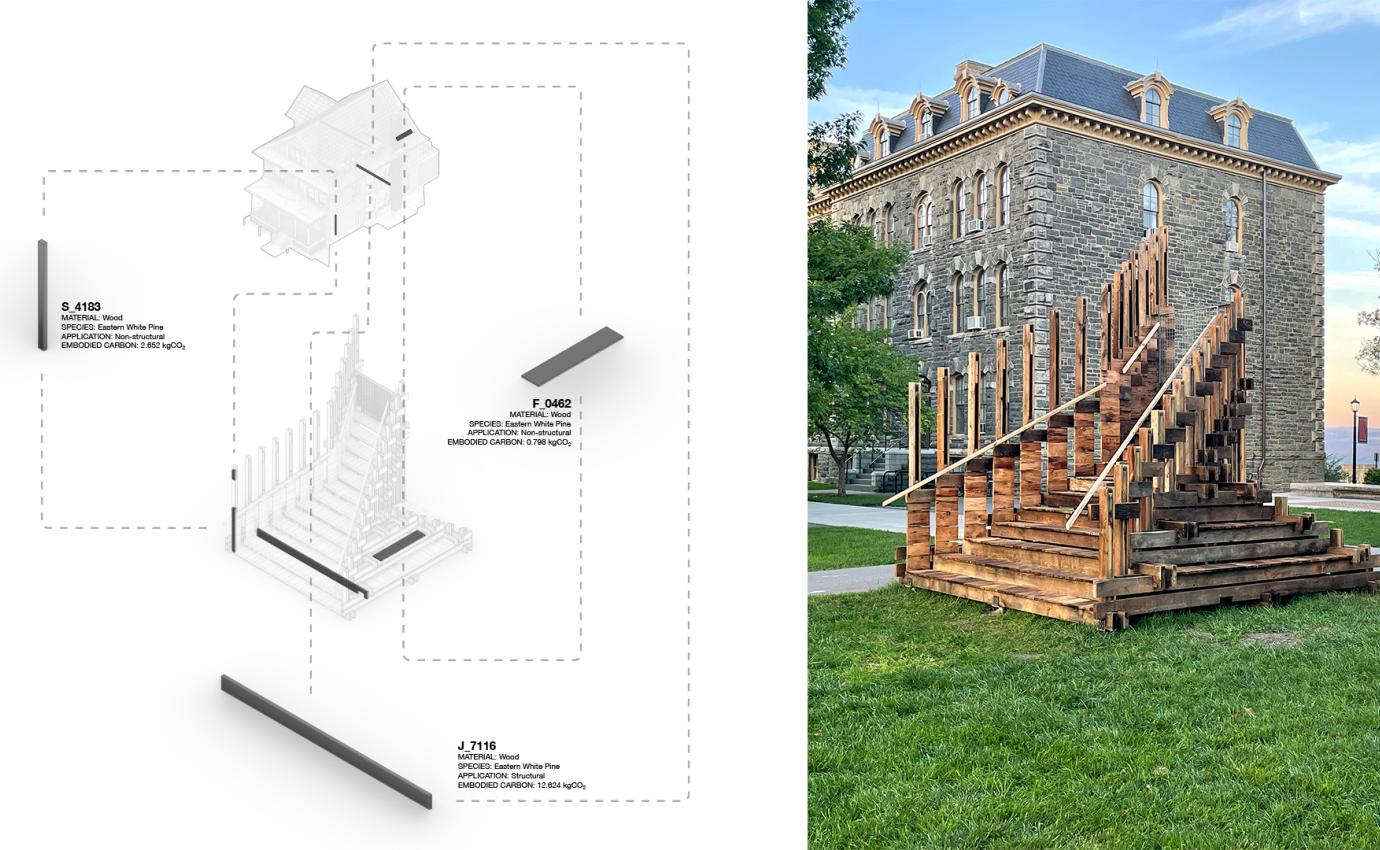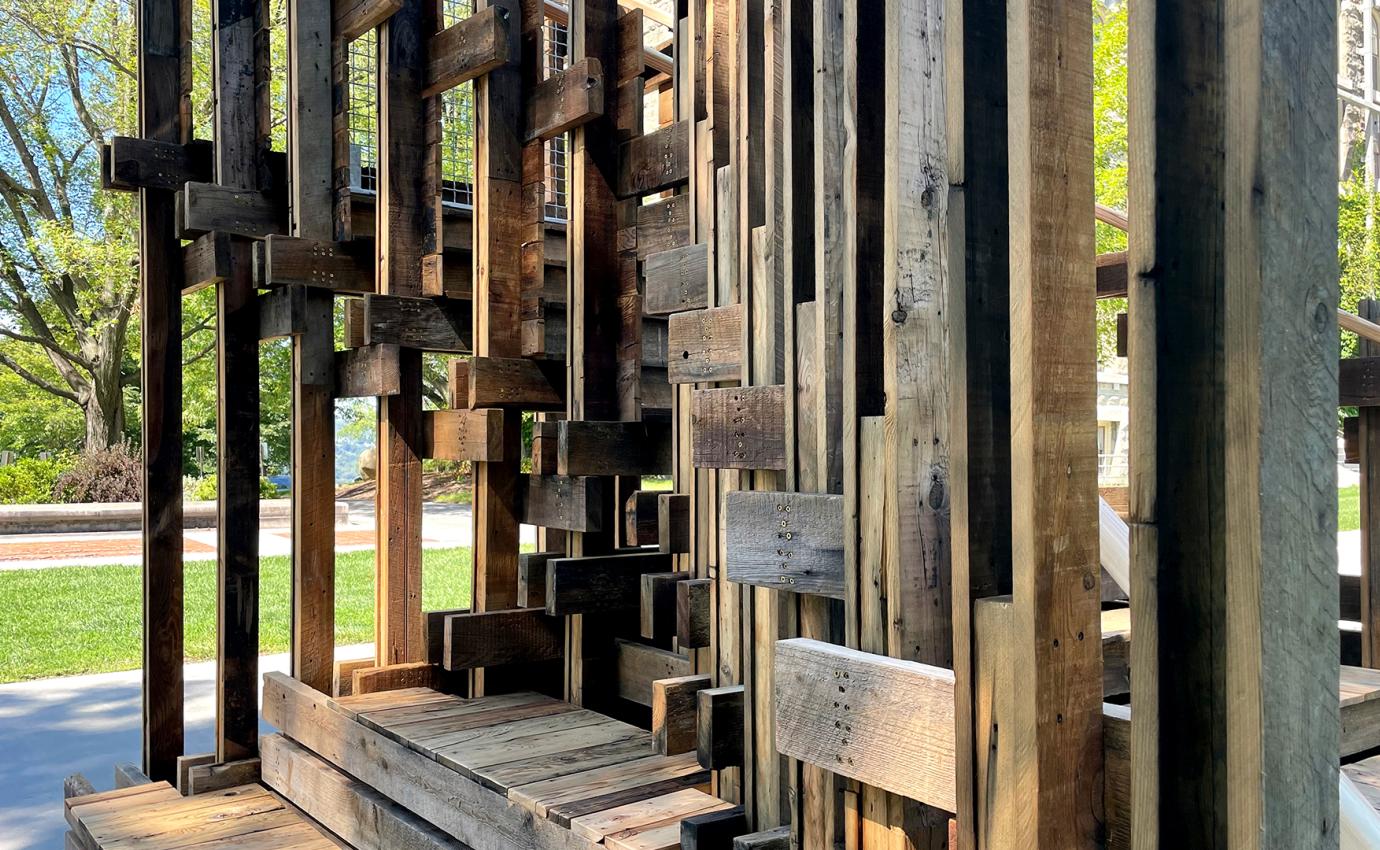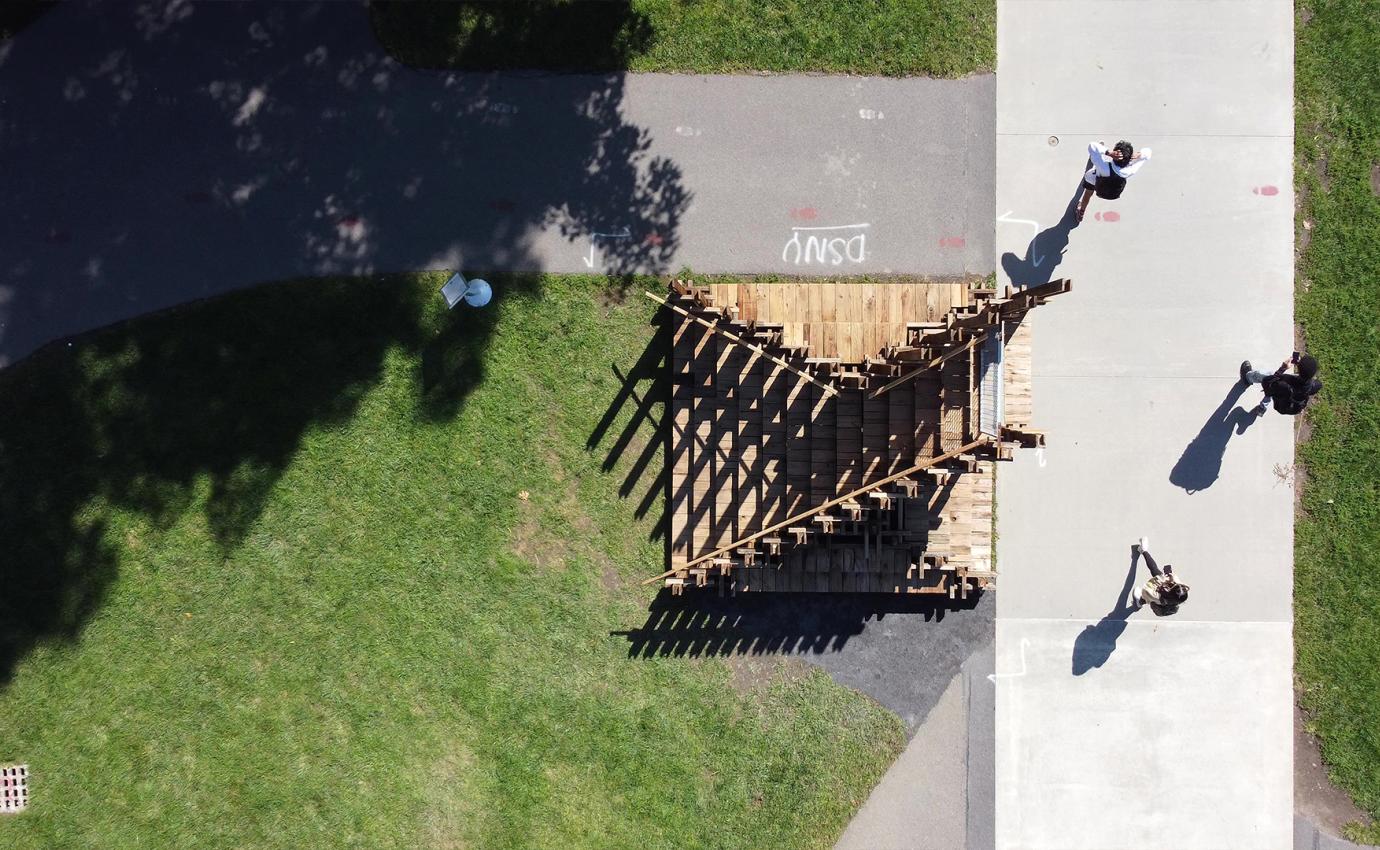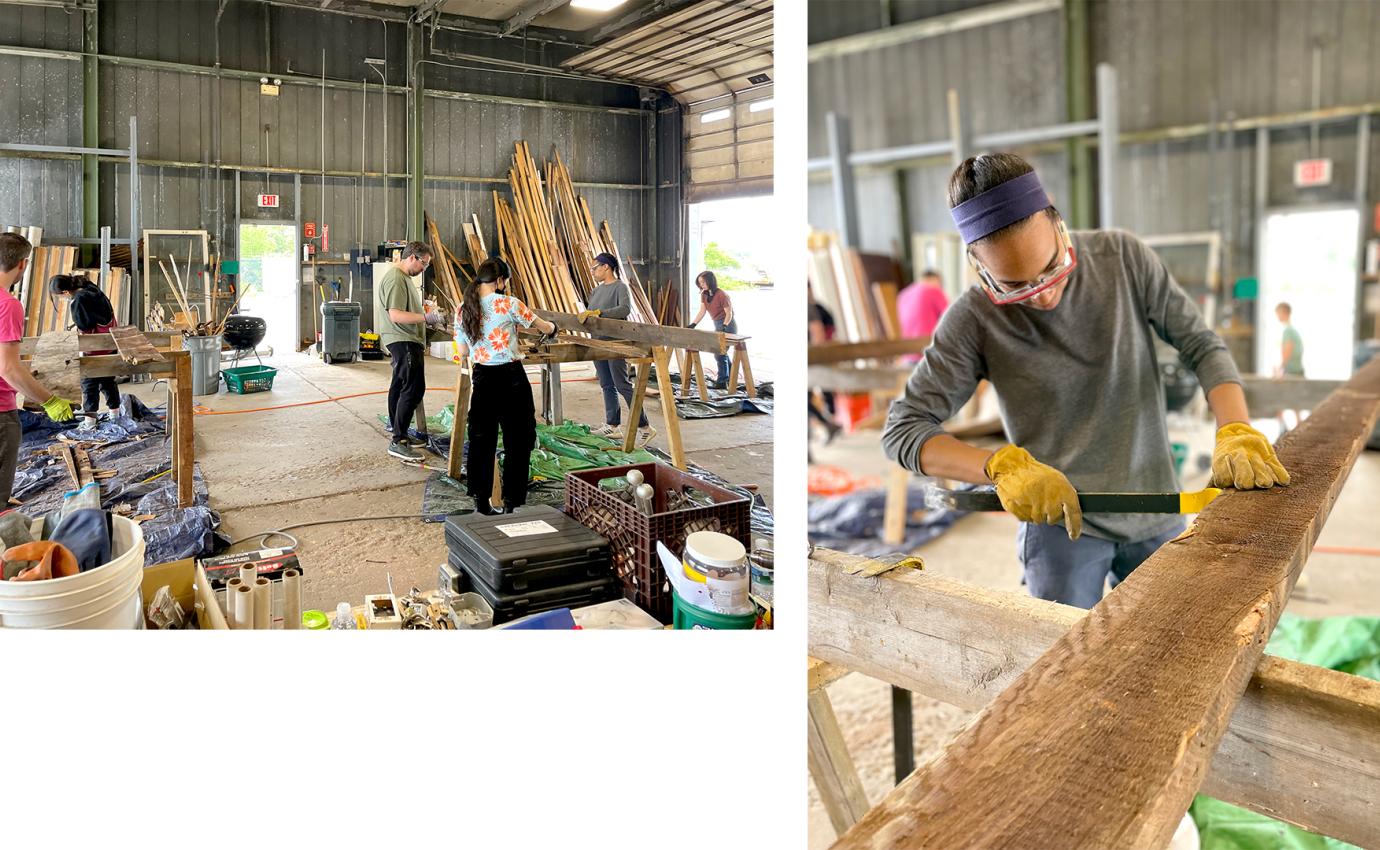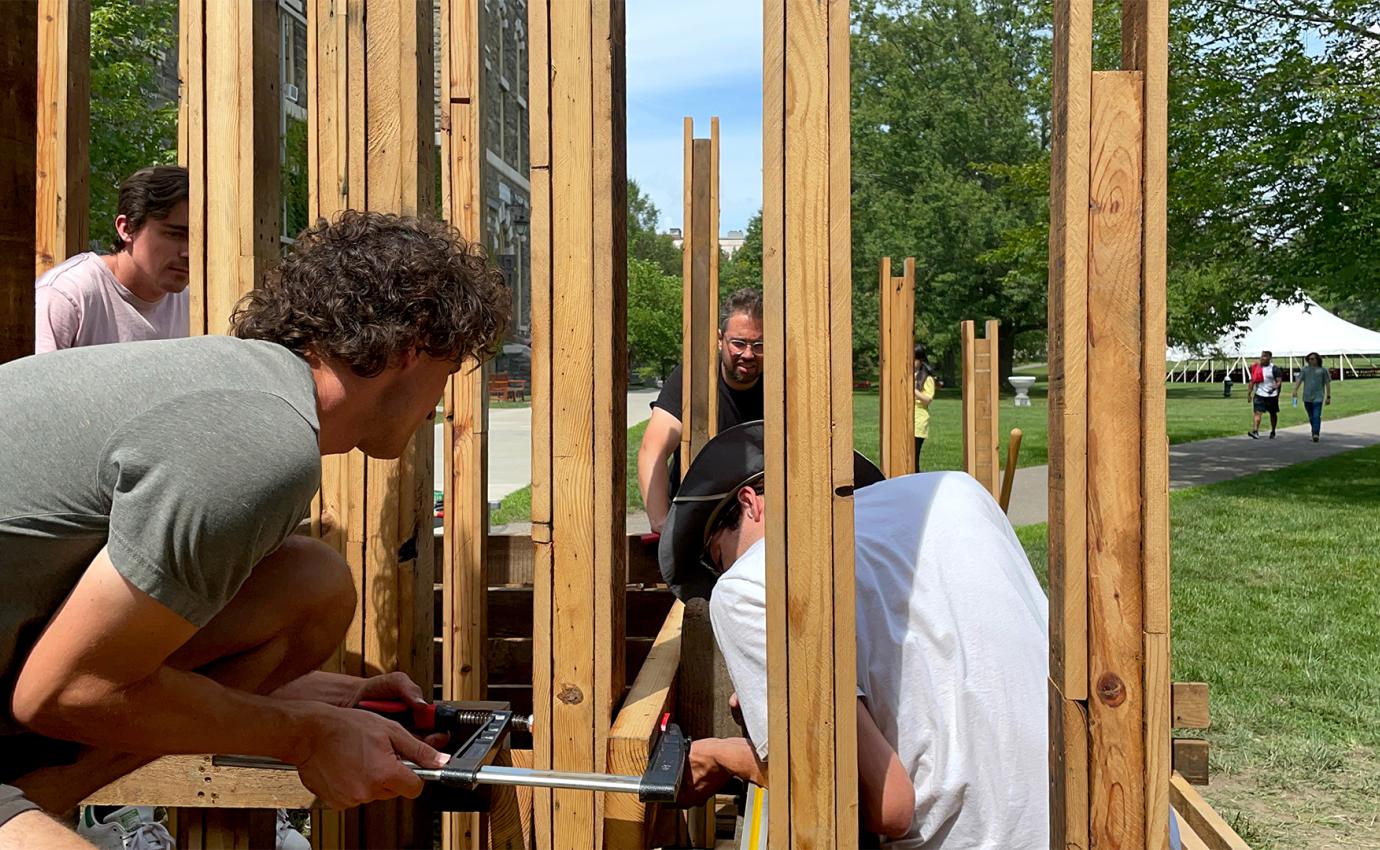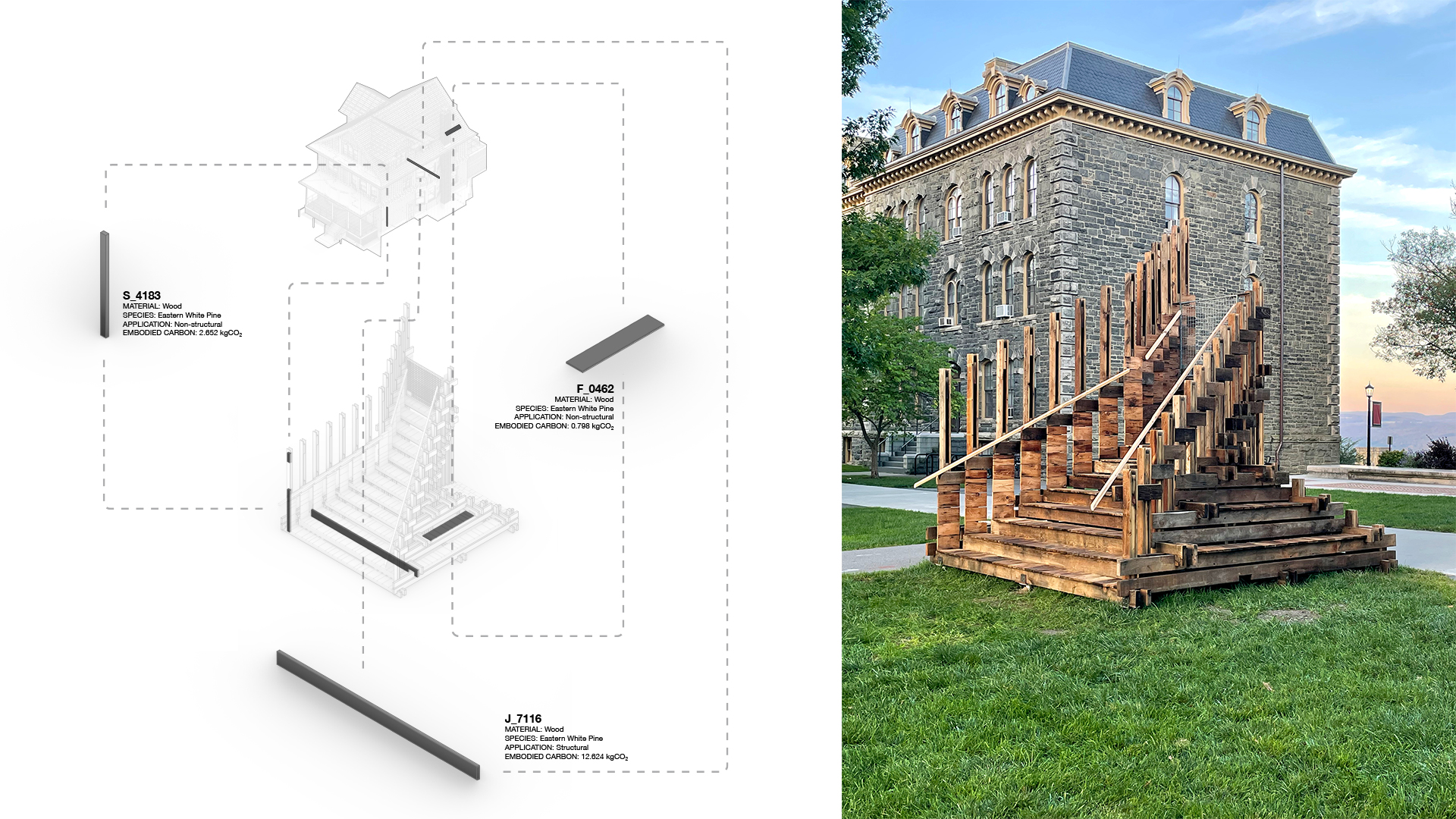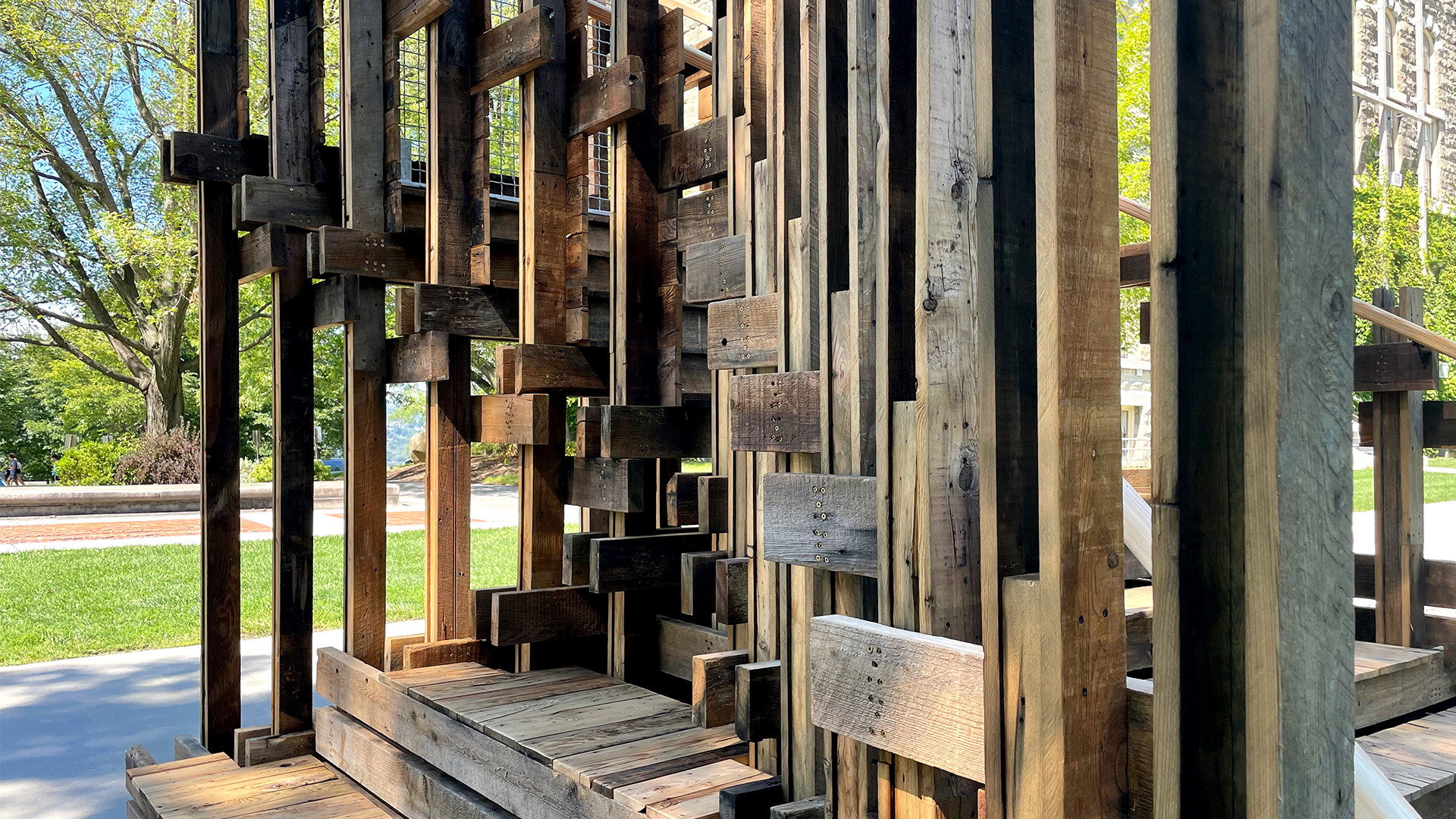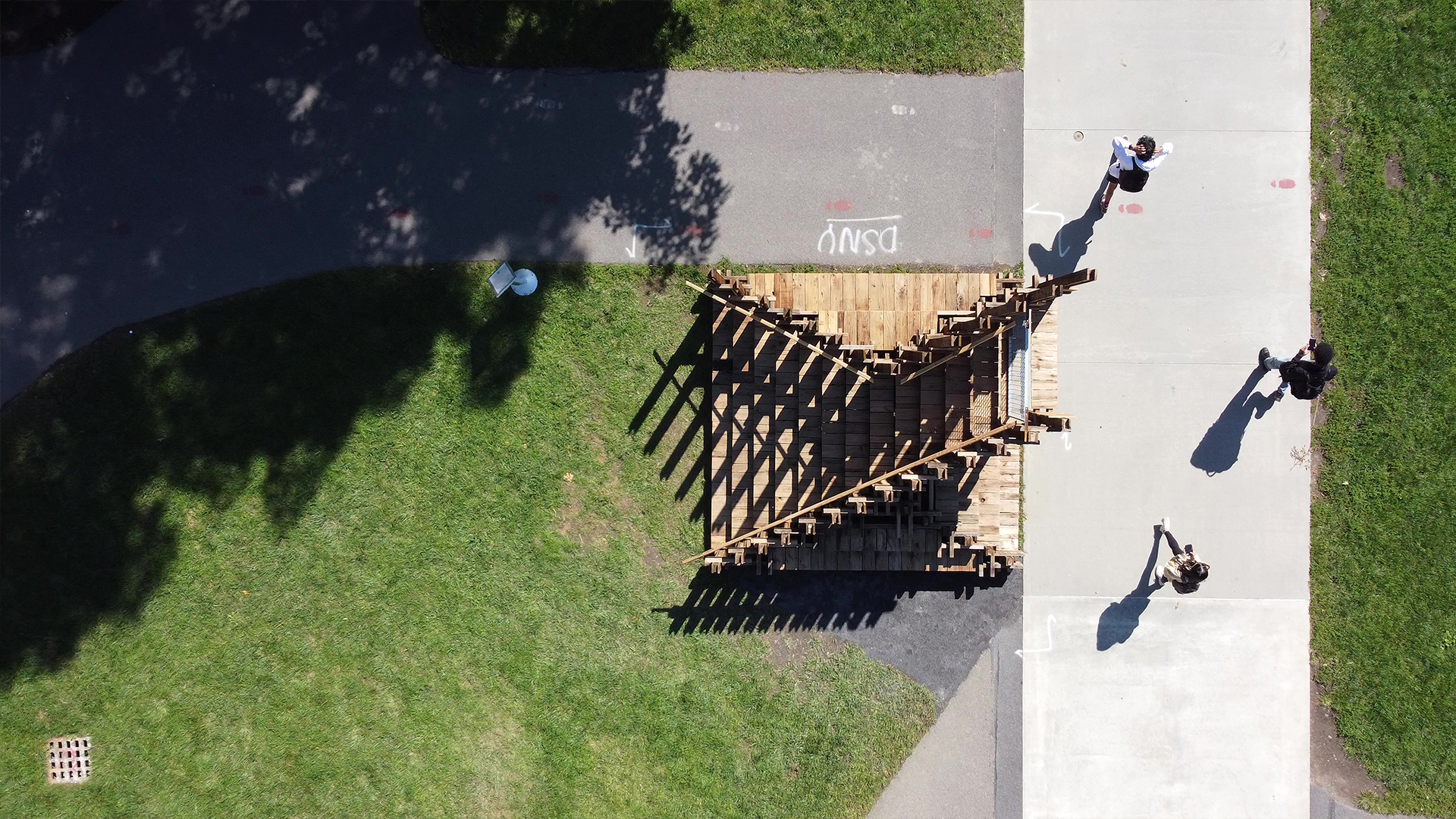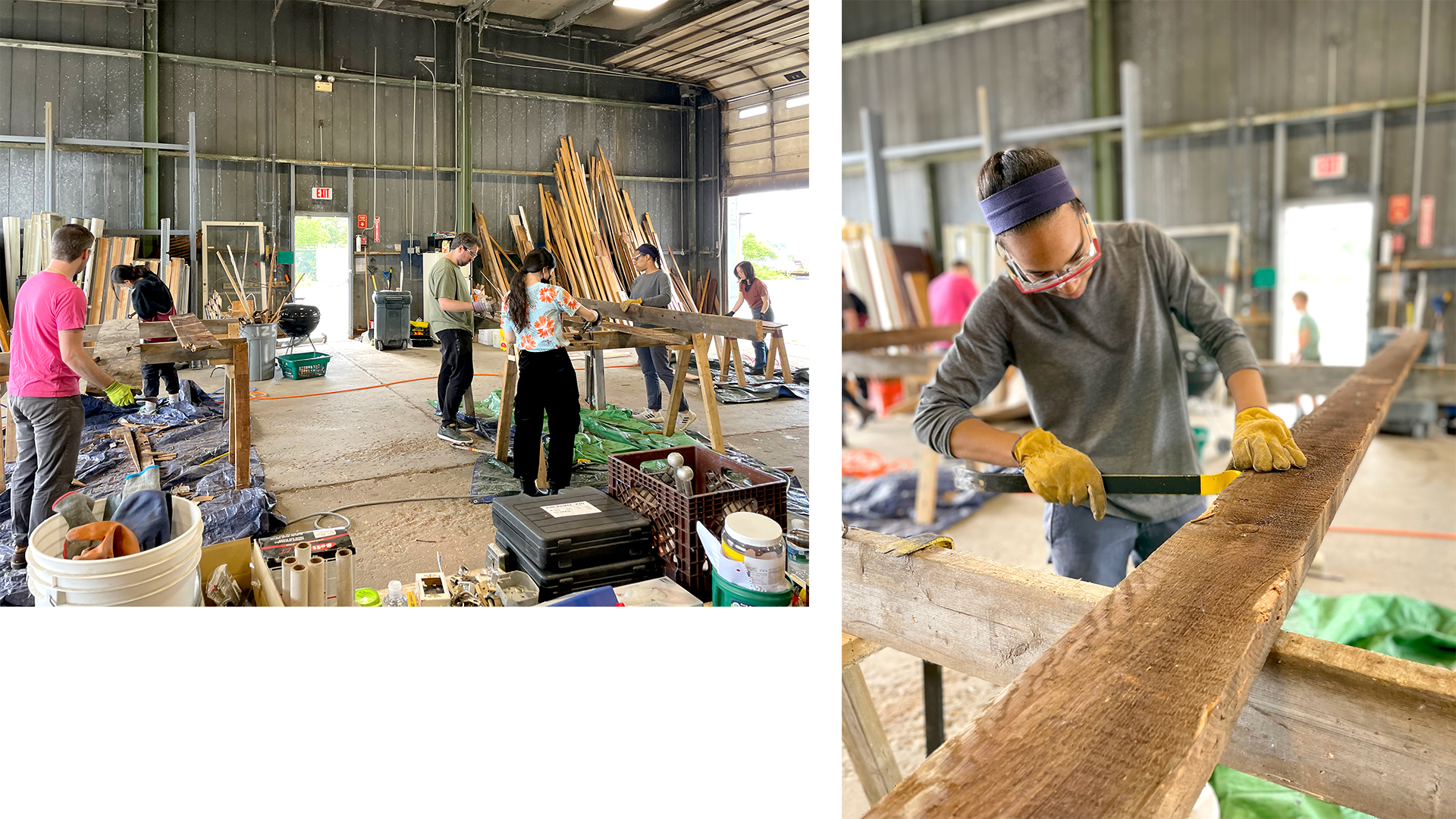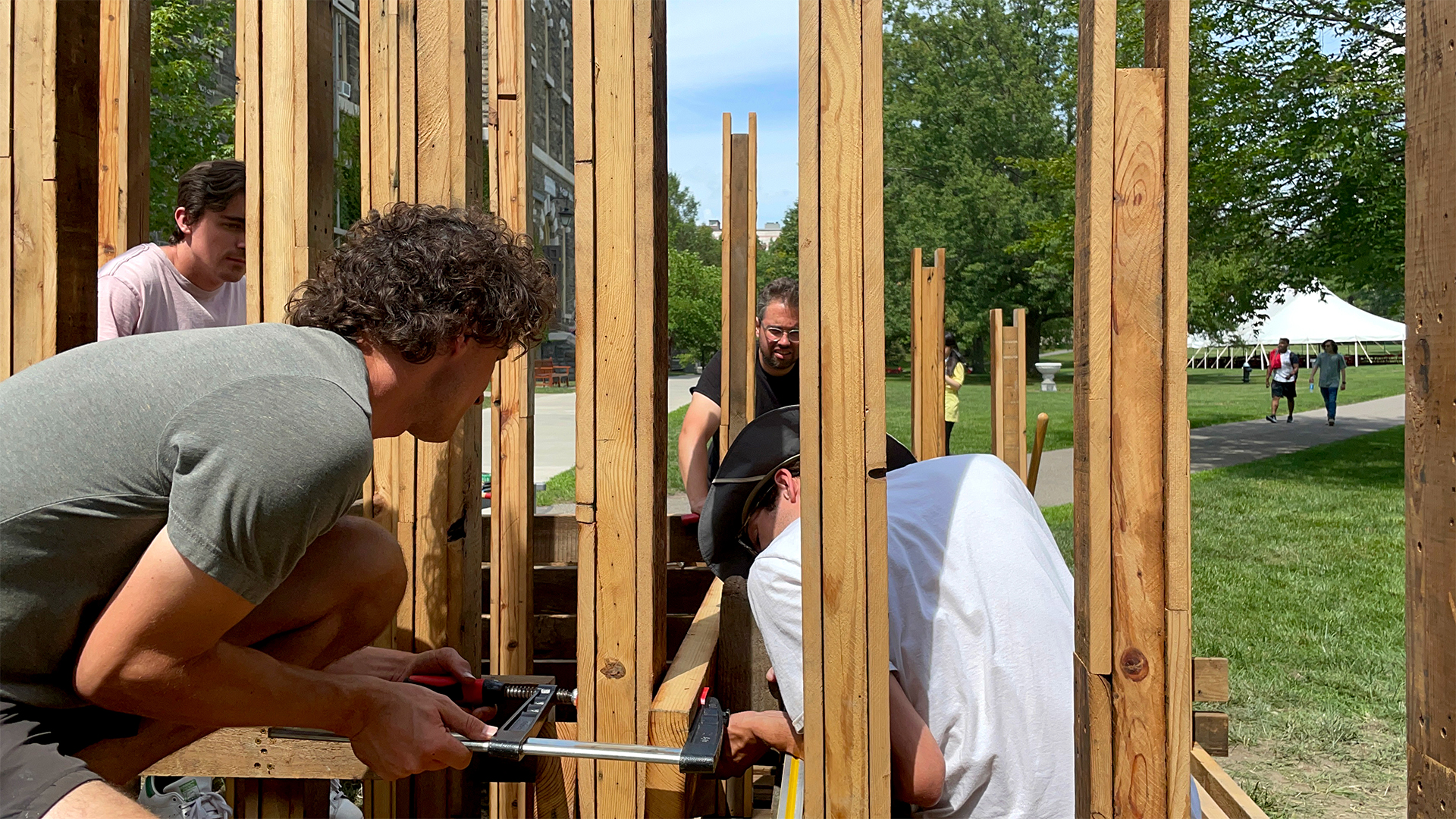Circulating Matters explores the potential of a local circular construction industry in Ithaca, New York. The project directly reuses materials from the Catherine Commons Deconstruction Project (a former 1910 residential structure that has been deconstructed by academic and community stakeholders within an Engaged Cornell Grant in January 2022), reactivating the material qualities and values of the building for the construction of the installation. The spatial design plays on concepts of circulation and circularity by re-imagining a staircase as a multi-directional, spatial folly engaged with its materials’ past (patina, dimensions) and future (reversible connections, design for disassembly).
The installation addresses the question how systemic concepts and methods for direct reuse of building elements at scale can be developed and implemented by combining panelized deconstruction with circular construction principles for a site-specific architectural application. The design aims to promote a design paradigm that begins from the uncertainties of local material availabilities, and foresees futurities of material and component reuse within industrialized re-construction.
Globally, buildings and construction account for about 50% of resource extraction, and at least 40% of both carbon dioxide emissions and solid waste production. Within the USA alone, 600 million tons of construction and demolition debris are generated each year – twice the amount of municipal solid waste, making up about 40% of landfill waste in the country. All of these factors are dominant reasons for climate change.
The concept of a circular economy represents a way to overcome social, economic, and environmental problems of the current linear economic system, and can be defined as one that is “restorative and regenerative by design and aims to keep assets, components, and materials at their highest utility and value at all times.” The consequent closing of production and consumption loops offers not only the possibility to end the loss of valuable finite resources, but also to reduce dependencies on global, volatile resource markets, prevent greenhouse gas emissions, mitigate the effects of the climate crisis, and support new business models and green workforce development.
About the Biennial:
“Futurities, Uncertain”, the 2022 Cornell Biennial curated by Timothy Murray seeks an artistic call and response to counter singular utopic models, colonial visions, and socio-cultural sameness. How might artistic imaginaries stage the potential of multiple futurities, thus rendering uncertain the confidence of the colonial past and the multinational present? Inspired by global artistic response to technological and biopolitical hegemony, artistic futurities imagine cultural transformation in its plenitude. An exchange of artistic projects across the disciplines might animate the future differently: Future Cinema, Future Cities, Afrofuturism, ecological activism, artistic animisms, biological (r)evolution, poetic realism, abstract expression, sound fields, surviving species, feminist utopias, intermedialities, imagined gardens, and sacred spaces. Projects might ponder future blends of human, animal, and material just as they might reflect on fluid temporal movements between past, present, and future. How, today, might artists respond to the future demands of death, erosion, war, memory, extinction, social oppression, digital obsolescence, and cultural terrorism? How might multiple artistic practices embrace the uncertainty of futurities to activate creativity, thought, and social justice anew?



